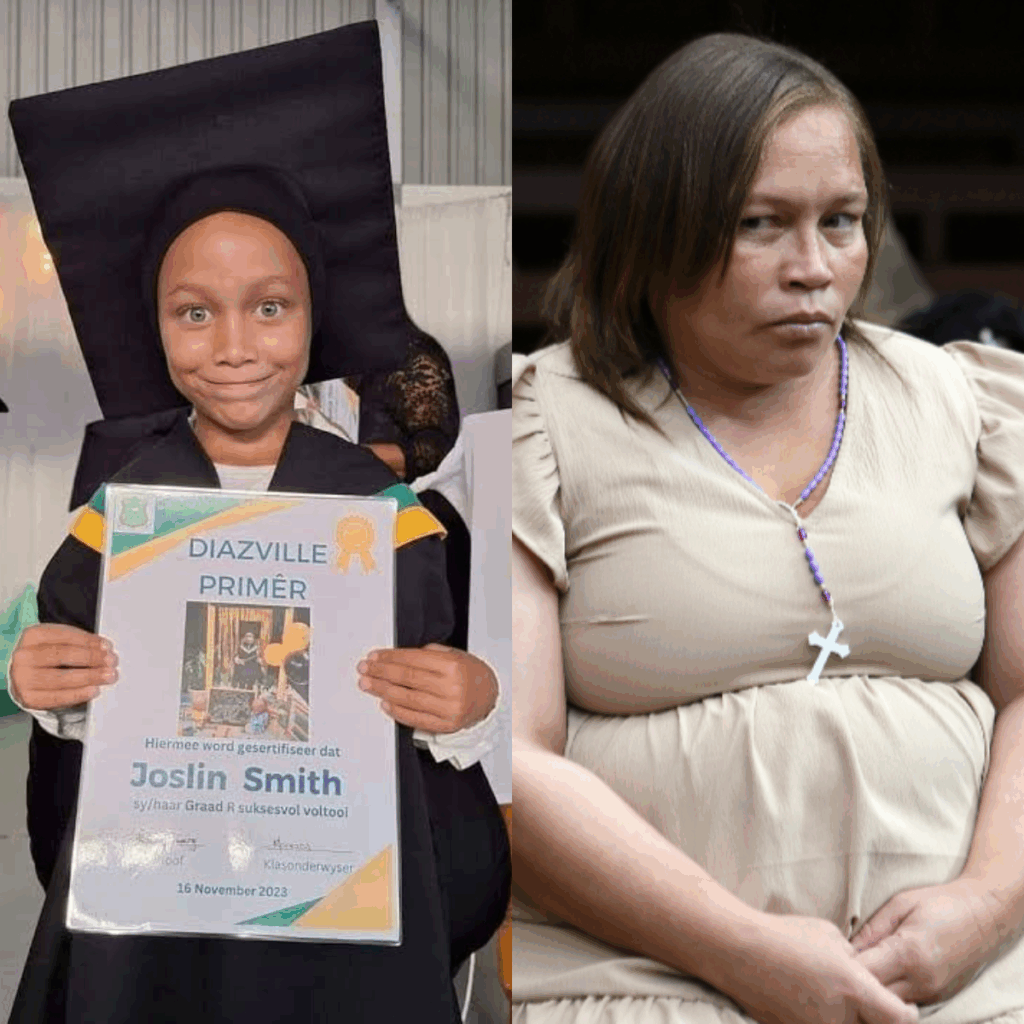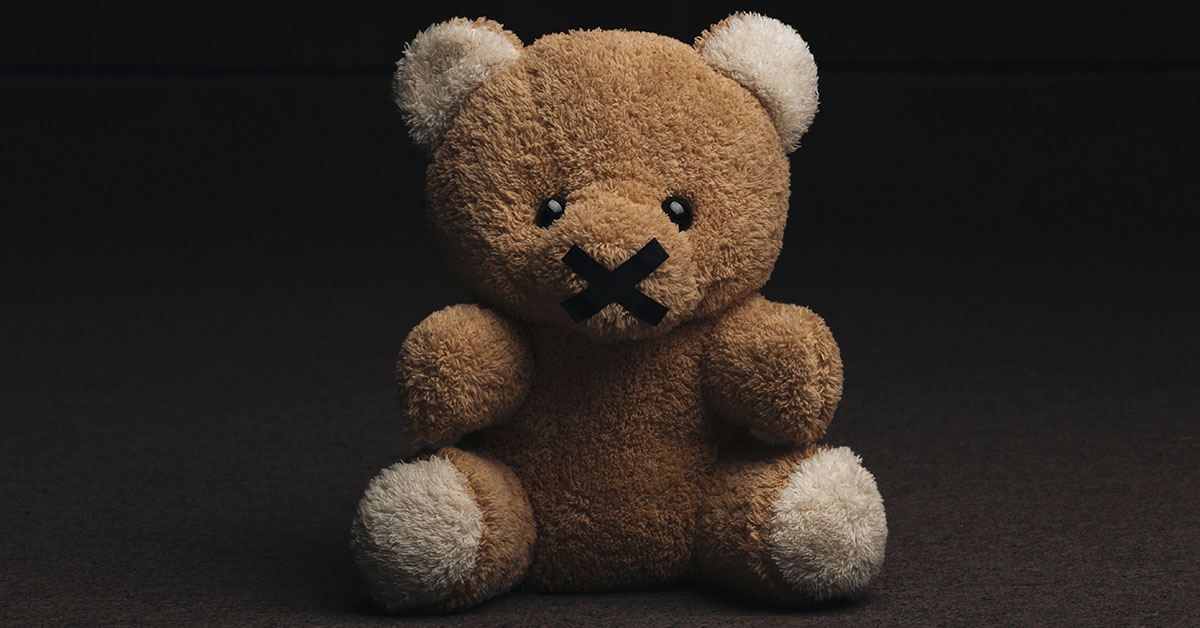The tragic case of six-year-old Joshlin Smith horrified South Africa and sparked global outrage. What began as a missing child report in February 2024 quickly unraveled into a disturbing child trafficking case. Police later revealed that her mother, Kelly Smith, sold her to a traditional healer. Witnesses claimed the buyer wanted Joshlin for her “skin and eyes.” In May 2025, a court convicted Smith, her boyfriend, and a friend of kidnapping and trafficking the child.
This story reveals not only a deep betrayal but also the hidden dangers children face in vulnerable communities. It exposes how child trafficking continues to thrive where poverty, neglect, and superstition collide. Here’s what the investigation and trial uncovered, and why this case has shocked the nation.
The Day Joshlin Disappeared
On February 19, 2024, Joshlin vanished from her home in Saldanha Bay. Her mother told police she left her with her boyfriend, Jacquen Appollis, while she went to buy medicine. When she returned, the child was gone.
The local community responded immediately. Volunteers formed search parties, posted flyers, and contacted authorities. Even the South African Navy joined the search. Despite these efforts, no one found Joshlin.
As days passed, police noticed inconsistencies in Kelly Smith’s story. Investigators began suspecting that someone close to Joshlin had trafficked her. The missing child case shifted into a criminal investigation rooted in child trafficking.
Testimonies That Exposed the Truth
During the trial, key witnesses exposed a grim reality. Neighbor Lourentia Lombaard testified that Smith admitted to selling her daughter. She also claimed Smith offered her money to stay quiet.
A local pastor added weight to the case by sharing that Smith had previously talked about selling her children for money. According to him, she had already considered it long before Joshlin’s disappearance. Joshlin’s teacher also spoke up. She recalled a chilling conversation in which Smith mentioned sending her daughter to West Africa inside a shipping container.
These consistent accounts gave prosecutors the evidence they needed. On May 2, 2025, the Western Cape High Court convicted Smith, Appollis, and their friend Steveno van Rhyn of kidnapping and child trafficking. The court ruled they knowingly sold or exchanged Joshlin and then lied to authorities to cover their actions.

The Ritual Motive
Witnesses said Smith sold Joshlin for 20,000 rand (about $1,100) to a sangoma, a traditional healer. According to the testimony, the buyer specifically wanted Joshlin’s skin and eyes for ritual purposes.
Police could not confirm the buyer’s identity or the intended ritual. However, the court accepted the testimony as credible. In South Africa, most sangomas practice within legal and cultural norms. Still, rare cases link some rogue practitioners to extreme rituals. This case reignited fears about how spiritual beliefs can be twisted into acts of violence.
Although the court didn’t identify the buyer, the evidence clearly pointed to ritual exploitation. Prosecutors confirmed this sale met the legal definition of child trafficking under South African law.
Outrage in the Courtroom and Across the Nation
Community members filled the Saldanha Multipurpose Centre to witness the verdict. As the judge announced the convictions, people cheered, cried, and hugged one another. For many, the ruling brought justice, but not peace.
Even Kelly Smith’s own mother confronted her in court. She demanded to know where Joshlin was and how her daughter could commit such an act. Her grief mirrored the pain shared across the country.
Despite the guilty verdict, Joshlin’s body has not been found. Police have promised to keep searching. They continue urging the public to come forward with any information.
The Crisis of Child Trafficking
Joshlin’s story highlights the tragic reality of child trafficking in South Africa. Many asked how a woman with a known history of drug abuse and instability could fall through the cracks. Social services failed to intervene in time.
In impoverished communities, children face multiple risks, abuse, neglect, and trafficking among them. Families in crisis often lack the resources or support they need. Exploiters prey on that vulnerability. Joshlin’s case shows what can happen when society ignores the signs.
However, the bravery of community members proved critical. Neighbors, teachers, and church leaders stepped forward and testified against Kelly Smith. Without them, the truth may never have come out.
What Happens Next?
Now that the court has delivered convictions, Smith, Appollis, and van Rhyn face potential life sentences. Their sentencing is expected soon. While the legal outcome offers some justice, Joshlin’s family and community remain haunted by her disappearance.

Police continue to investigate. They remain committed to finding Joshlin and holding anyone else involved accountable. Meanwhile, lawmakers and advocacy groups are calling for stronger protections. They want better screening for at-risk families, improved social worker training, and more education about the warning signs of child trafficking.
A Wake-Up Call for South Africa
Joshlin Smith’s story is not just a case; it’s a tragedy that demands national reflection. A mother sold her daughter, a community watched it unfold, and a child remains missing.
But the story also offers lessons. It shows the importance of speaking up, the impact of community support, and the urgent need to stop child trafficking before it starts. South Africa cannot undo what happened to Joshlin. But it can use her story to protect other children in the future.
Read More: DOJ Announces Success of Nationwide Child Predator Crackdown

